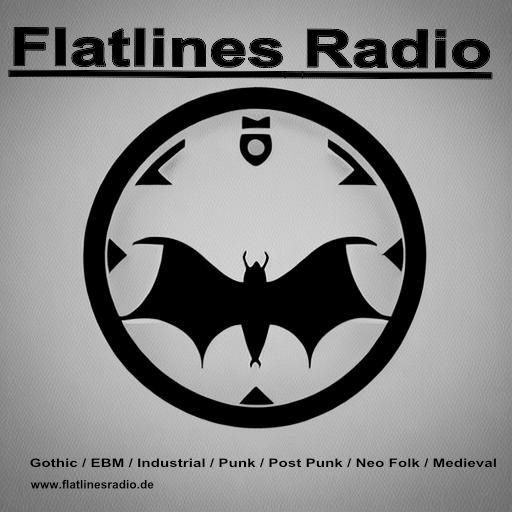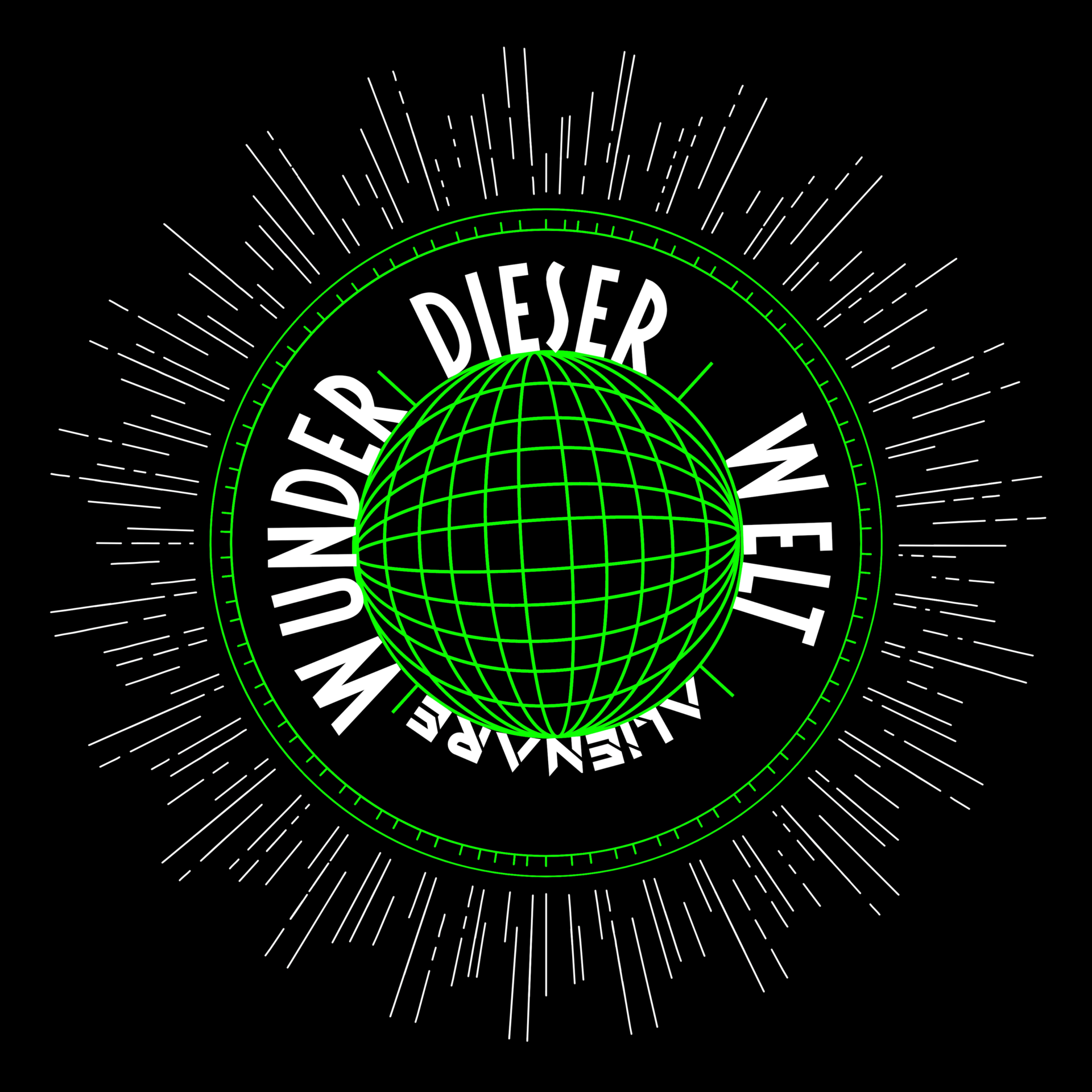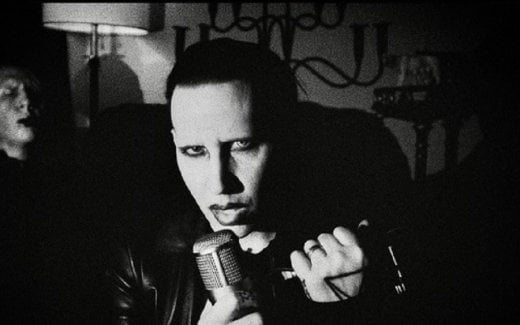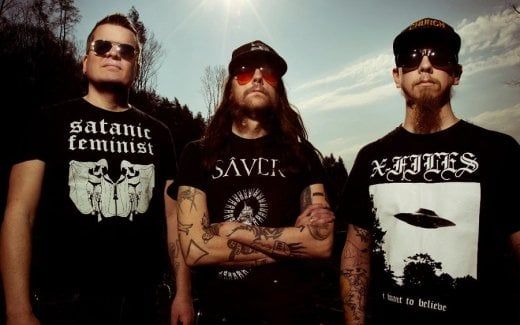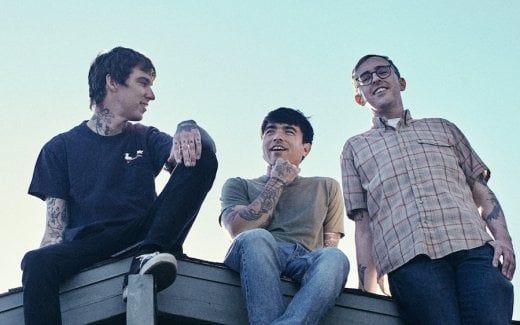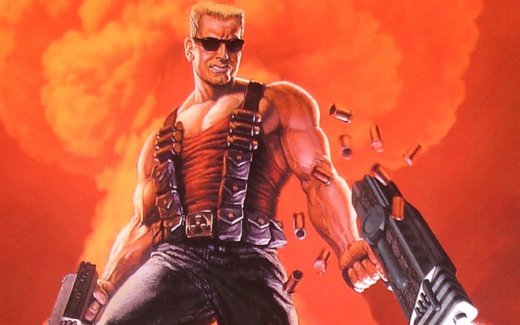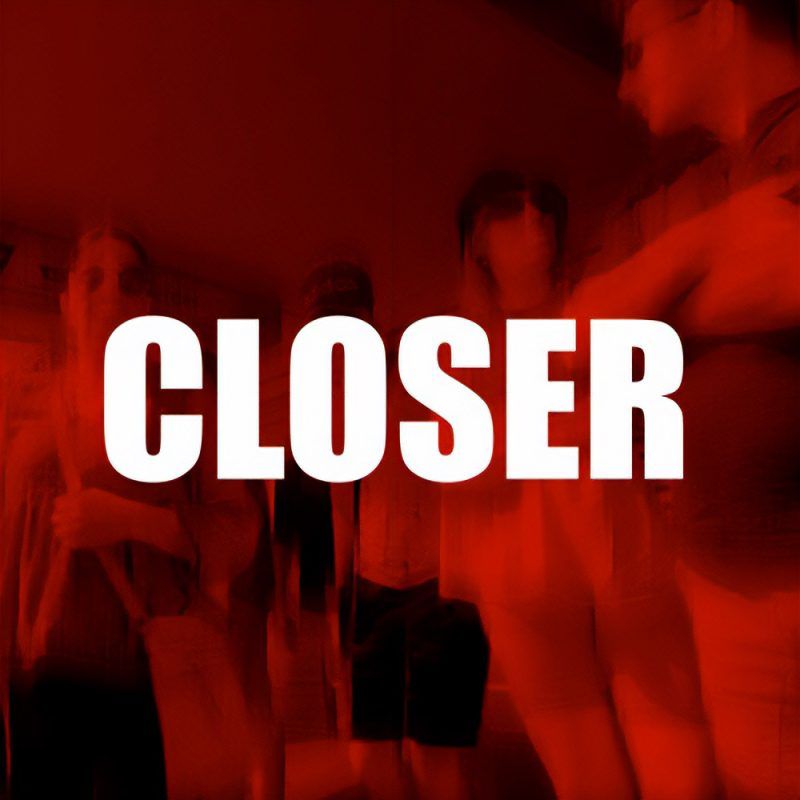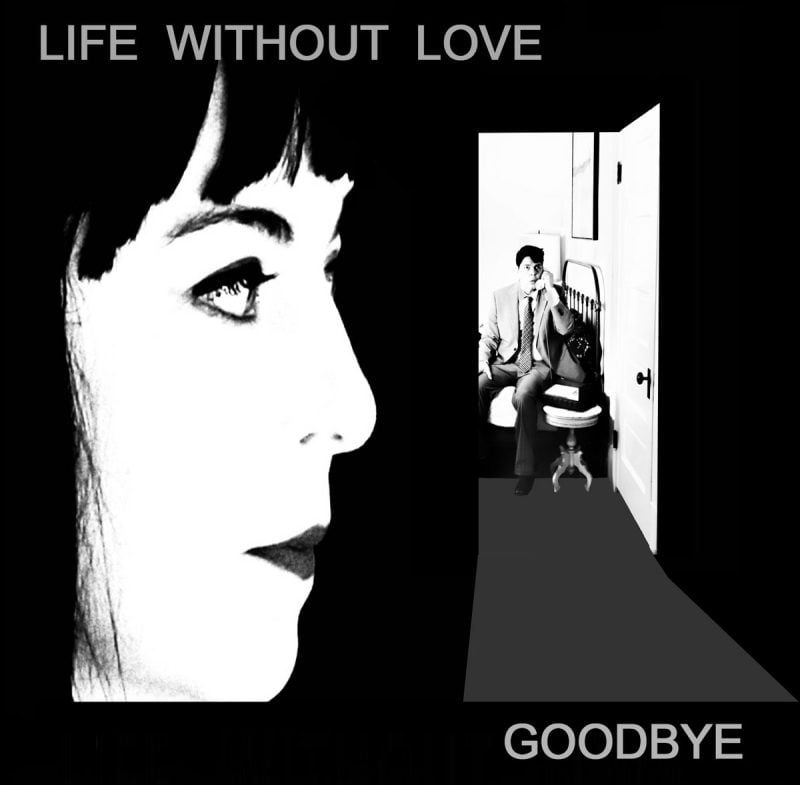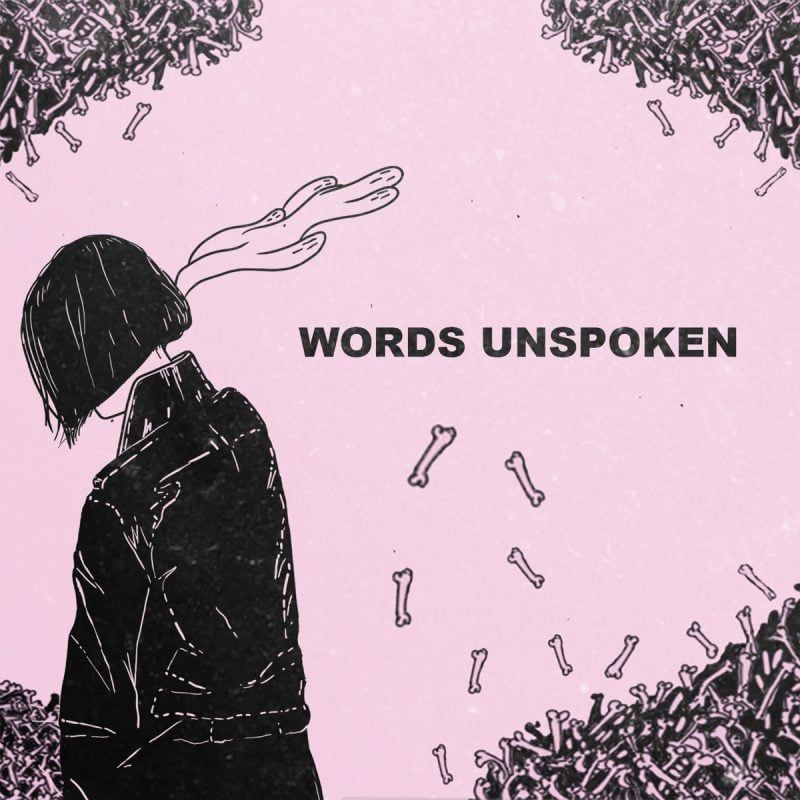
Follow us on social media
London Dark Synth Project Night in Athens Debuts Tenebrous Video for “Words Unspoken” — Plus Interview
Follow us on social media
Night In Athens is a dark synth project that was formed in East London in 2020. Unsettling vocals pierce their music with whispers, cajoles, and screams. They delve into the shadows, unearthing the murk and sociopolitical decay of what were once brave societies. Their haunting tunes are dynamic dirges that expose the corruption festering within the human condition.
Their latest single, Words Unspoken, delves into the profound serenity of silence amidst the cacophony of modern existence. Initially, it may seem like a dark wave tune, yet it reveals silence as unsettling, odd, and even frightening. The lyrics portray silence as a sanctuary, a place of wisdom and peace, standing in stark contrast to the world’s turmoil. Through hushed whispers and unspoken words, the song underscores how silence offers true freedom and respite from constant demands, highlighting the modern struggle to communicate emotionally and love genuinely. Silence is often more than just a lack of sound.
The haunting video for Words Unspoken, a performance piece, was filmed in a North London industrial warehouse, under the direction of Simone Pellegrini. The stark, eerie setting perfectly complements the song’s exploration of silence and its unsettling power, creating a visual counterpart to the song’s theme of finding sanctuary amidst chaos.
Watch the video for “Words Unspoken” below:
Words Unspoken is part of the album Wasted Reflektions, which will be released on July 1, 2024, on Wave Records.
Night In Athens was kind enough to take the time to speak with Post-Punk.com about the upcoming album and the band’s distinct sound and vision.
What sparked the creation and development of this forthcoming full-length collection, particularly after the “Metropolis” LP?
Everything I’ve written in Crime Seen represents my thoughts on the erosion of individuality and the rise of conformity, as well as mental health and psychological states. These observations, paired with my personal experiences, made for a funny commentary on the record. It was brief and scathing. However, in retrospect, it may have been a touch too “preachy”. Wasted Reflektions offers a more contemplative, metaphorical, and abstract approach than the previous album. There was more to lay out at this time, and it had been two years since the previous one, so there were more tracks in it. The planned record also includes words and concepts that had been created years ago but had never been publicised.
What themes and ideas are explored on the new record?
I believe this album reflects a wide range of feelings and thoughts that most people keep concealed and are unwilling to communicate. It is closely related to the present political atmosphere and the impact it has on us, the people. For example, some songs depict desperation and rage. I observe that the majority of us want to avoid conflict, both with others and ourselves. People who are stuck in a drab, lifeless, robotic routine will understand these lyrics. Technically, there is some experimentation with the voices, and I dabble with incorporating guitar in a couple of tracks.
Are there any collaborations on this new album? Or are there any other artists you would like to work with in the future, from the current scene or classic artists from the 80s and 90s?
There are no collaborations on this album. But certainly, I would love to work with artists. I’ve previously done some additional collaborations that aren’t featured on this album. I enjoy collaborations, especially because I used to be in a band and miss the cooperation factor. There are numerous artists from both eras. In an ideal scenario, I’d want to partner with Xmal Deutschland.
Your music embraces multiple languages, with songs in Greek, French, and English. How do you decide which language to use for a particular song, and how does it influence the song’s thematic and emotional delivery?
I don’t think about which language to use strategically, although I know my English is more effective for creative writing. The focus on the tonic accent in multisyllabic words makes it easier to come up with a lyric. On the other side, I feel Greek or French are more suited for particular genres of music, such as coldwave, and both sound foreign. To be honest, I don’t write well in Greek or French, therefore the outcome is a lyric that lacks rhyme, however, it could work better with a more melodic song.
You’ve mentioned using a variety of machines and analogue synths, like Roland drums, to create the desired sounds for your music. Could you elaborate on your creative process and how you integrate these tools to achieve your unique sound?
I do have certain favorite sounds that I use more regularly, such as the snare of Tr-606 drums, which I feel suits well with many of my tracks, or a few of Roland’s sounds. I normally write down my first ideas on a daw. When I have a concept, I can create the song immediately away, making it simple to write. Following that, I attempt to build on the song by visualizing certain sounds or playing with the instruments on the already-created synthesis. Then I find sounds that I believe would go well with the music and record them on the already prepared midi. Recently, I’ve been jamming considerably less, unfortunately.
Much of your music seems to be a reflection of urban life and sociopolitical issues. How do your surroundings and personal experiences in cities like London and Athens shape your music and lyrical themes?
Urban living has a significant impact on my daily life, or rather, it absorbs my daily existence haha. An artist’s ideal atmosphere is one in which they feel comfortable, motivated, and inspired to write. As a writer or artist, you want to be inspired by your surroundings while maintaining concentration. For me, the city gives a level of invisibility that allows me to ‘play’ the observer, listen in on tube and sidewalk discussions, and sit in a cafe with a large window and study people. There are no greater people to watch than those from London. There are so many various types of people telling such diverse stories. There is so much of everything.
Your music is described as a fusion of dark electro with elements of punk, darkwave, and coldwave. How do you navigate these genres to create your distinctive sound, and what draws you to these particular styles?
I feel all of these belong to the gloomy synth genre. I write according to my mood and how I feel at the moment. Sometimes I create a song based on lyrics that I already have, which influences the tempo or synthesis. I appreciate a wide variety of compositions. As a listener, I likewise find it difficult to stick to a single and narrow “genre”.
Who or what are your biggest inspirations, both musically and in terms of your overall creative vision? How do these influences manifest in your work?
I would argue that movies, literature, and psychology have had a significant influence on me. Because of my academic experience in psychology, I appear to hunt for this pattern in behavior automatically. Furthermore, I believe I have lost confidence in humanity, which is evident in my creative outputs, both musical and artistic. Pessimism is particularly prevalent in those.
Your work is characterized by a strong DIY ethic, with much of your music being produced in your own space. How important is this level of control to you, and how does it impact the authenticity of your music?
Yes, I would not refer to my project as DIY, if you don’t mind, but I record, produce, make artwork and videos, self-fund, and distribute my music up to this point. One undeniable benefit of taking a DIY approach is that you are not constrained by anyone but yourself when it comes to your music. With the ability to establish your own sound, creative goals, and timetables, you can completely enjoy experimentation and exploration without compromise. I enjoy the independence; aesthetic output is really vital to my artistry. However, I believe that contemporary DIY can include labels (depending on the contract and your artistry).
Besides music, you also delve into visual arts, often with dark and pessimistic themes. How do you blend your visual artistry with your music, and how do both mediums influence each other in your creative process?
I use metaphor, symbolism, sarcasm, and nihilism in both music and visual work. Both media provide a through-line connection. Lyrics are the vehicle that transfers my emotions. I begin by putting down words and fragments of ideas concerning my feelings. Then, start weaving them together to form a narrative that captures the essence of how I’m feeling. Similarly, I tell brief stories through art. Furthermore, I enjoy designing my posters, t-shirts, and amateur videos for the music project.
Looking ahead, what new themes or sounds are you exploring for your future projects? Are there any collaborations or new directions you’re particularly excited about?
I’ve recently started experimenting with FM. I appreciate an intriguing bassline. I feel this can be observed in several tracks from my past EPs; I’ve been experimenting with that sound on a couple of them. I’d like to take the next project in that way further, but I believe I have to learn a lot more. I’m new to electronic music production, so there’s plenty of room for learning and advancement.
Follow Night In Athens:

The post London Dark Synth Project Night in Athens Debuts Tenebrous Video for “Words Unspoken” — Plus Interview appeared first on Post-Punk.com.
